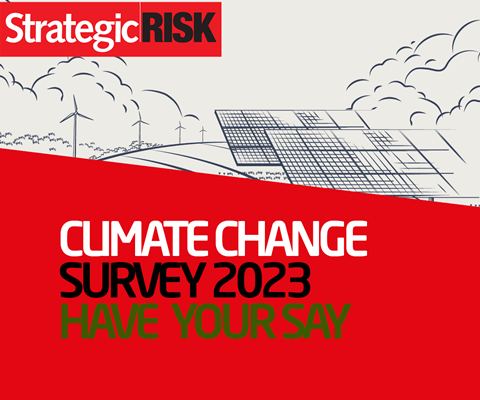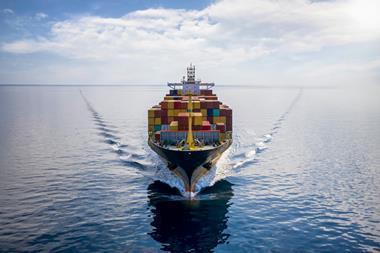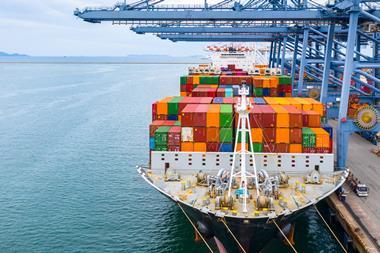New research exposes the supply chain risks facing organisations operating internationally. Here’s how they can be tackled.
Disruptions over the past few years, from the Covid-19 pandemic to the invasion of Ukraine, seem to be leading to a rethink of global supply chains.
How are these events affecting companies, their willingness to trade and the way they operate abroad? And what does it mean for risk managers?

Economic uncertainty remains strong
While companies are relatively optimistic about export prospects in 2023, economic uncertainty remains strong, according to Allianz Trade’s 2023 Global Survey
The insurer surveyed nearly 3,000 exporters from France, Germany, Italy, Spain, Poland, the UK and the US to find out about their expectations this year, their experiences with supply-chain disruptions, their plans to make supply chains more resilient, and their ESG strategies.
Globally, roughly 70% of companies expect business turnover generated through exports to increase year-on-year, down from 80% in the 2022 edition.
”While companies are relatively optimistic about export prospects in 2023, economic uncertainty remains strong”
Companies also appear to have a smaller appetite for new markets, favouring a consolidation of existing ones. 63% of respondents favour increasing investment in countries where they are already present, while 47% plan to invest in new countries.
When exporting, more than 55% of corporates plan to gain further market share in current countries where they are present, whereas 52% want to diversify and target new countries.
UK exporters along with the US ones are the least favourable at investing in new countries (43% and 39% respectively, against 45% in Germany, 50% in Italy and 51% in France).
Non-payment risk is a key fear factor
Compared to last year, more respondents expect the length of export payments terms to increase (42% vs. 31%), reaching levels close to 50% in both the US and the UK.
The percentage of respondents expecting an uptick in the export non-payment risk has increased compared to the early 2022 survey, rising +11pps to 40% overall. The increase is widespread across countries but especially visible in the UK and Germany (both +16pps), while it is only +6pps in Italy.
”Companies are facing a combination of lower demand, additional pressure on profitability and squeezing credit conditions”
“Companies are facing a combination of lower demand, additional pressure on profitability and squeezing credit conditions as central banks continue to increase interest rates to bring down inflation,” says Aylin Somersan Coqui, CEO of Allianz Trade.
“In this context, they are clearly bracing for longer export payment terms and higher non-payment risk in 2023. This is in line with our outlook for global insolvencies, which we expect to rise by +21% in 2023 (after +2% in 2022).”
Despite improvements, companies are still worried about supply-chain disruptions
Nearly 75% of respondents rated logistics hurdles and high transportation costs as having a moderate to significant impact on export activity in 2023, making it the top challenge in Germany, Italy and Poland.
For companies in the US and Spain, the top challenge is the cost and availability of financing. In contrast, for companies in the UK, high energy prices remain the top challenge to overcome this year. In France, companies are most concerned about non-payment risk.
The energy crisis and ESG
The energy crisis is accelerating the green transition.
Amid the economic slowdown and financing constraints, more than 80% of respondents say that they will prioritise business continuity over ESG commitments in 2023.
However, companies have not entirely given up on ESG targets: most respondents (85%) are stepping up efforts to shift to green energy sources over the long-term, especially in Spain, the US and France.
What can risk managers do to tackle exposures?
To mitigate disruptions to supply chains, the top three strategies are monitoring, risk management and ESG due diligence on suppliers.
“Despite fears about overlapping crises triggering deglobalisation, reinventing supply chains or relocating production sites are the least favoured options. However, companies hit the hardest by the energy crisis are leaning towards more supply-chain diversification.
”Companies that report a fair to severe disruption to their supply chains due to the energy crisis seem to be more concerned with making changes, with 35% expecting to relocate suppliers and production sites in the medium to long-term (against 11% for the least-impacted companies),” explains Ana Boata, global head of economic research at Allianz Trade.
”Companies are increasingly turning to Buy Now, Pay Later schemes to finance their exports”
To fund export development plans, firms expect to continue to rely on cash, bank loans and payment terms.
The former two options were also the top choices in last year’s survey – though the margin compared to other means has clearly declined this year, in a context of declining cash buffers at firms’ disposal and tightening bank lending conditions.
“Interestingly, beyond traditional sources of financing, companies are increasingly turning to Buy Now, Pay Later schemes to finance their exports. For companies in the UK and France, this is cited as the third source of financing after cash and bank loans.
”This growing interest could also unlock trade financing for Small and Medium Enterprises that were previously shying away from global trade,“ states Ano Kuhanathan, head of corporate research at Allianz Trade.
”The main priorities in terms of ESG measures still revolve around short-term actions”
Active labour policies for upskilling rank second after state-guaranteed loans and grants, stressing the importance of securing financing in the current environment.
Cost control seems to be the top priority as the third preferred public policy measure is lowering barriers to trade, including dropping the Carbon Border Adjustment.
When it comes to ESG, companies favour baby steps and business continuity for now
“The main priorities in terms of ESG measures still revolve around short-term actions, such as making environmentally friendly transportation choices, increasing ESG standards expected from suppliers or enhancing health and safety standards within the supply chain.
”But more structural measures are also being prioritised, such as developing sustainable and innovative products and services, and reducing exposure to brown activities,” adds Aylin Somersan Coqui.





















No comments yet